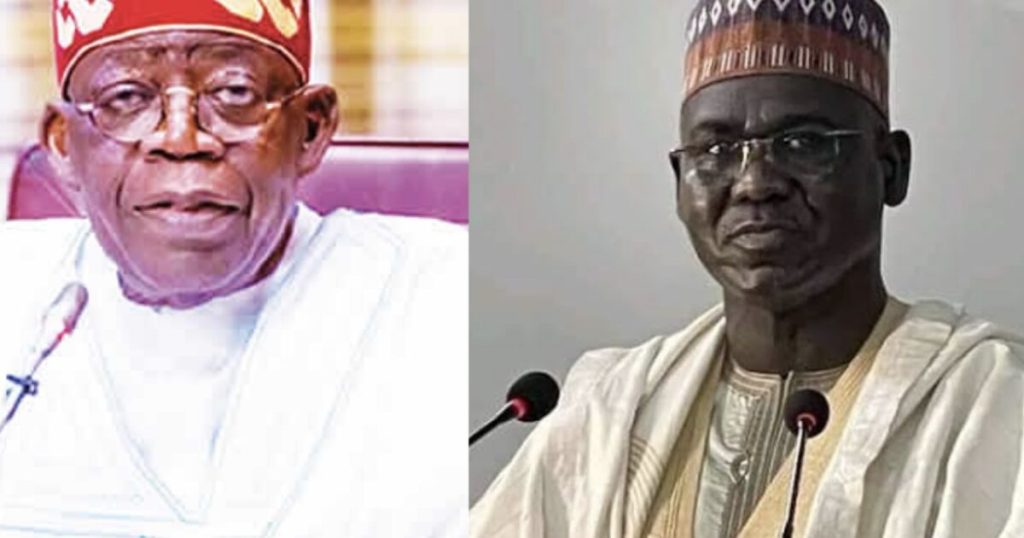Lieutenant General Tukur Yusufu Buratai, former Chief of Army Staff, delivered a compelling address at a lecture commemorating the 60th birthday of prominent Nigerian politician, Rotimi Amaechi. Central to his speech was a robust endorsement of President Bola Tinubu’s economic reform agenda, characterizing it as a bold and necessary departure from the strategies employed by previous administrations. Buratai argued that past governments, while well-intentioned, had often implemented policies that inadvertently exacerbated the economic hardships faced by many Nigerians. He contrasted this with Tinubu’s approach, which he lauded for its direct confrontation of long-standing socio-economic issues, even at the risk of short-term discomfort.
Buratai’s analysis delved into the historical context of Nigeria’s economic policies. He referenced the Structural Adjustment Programmes (SAPs) implemented under the Ibrahim Babangida regime, a period of significant economic restructuring aimed at liberalizing the Nigerian economy. While SAPs aimed to address macroeconomic imbalances and promote market-oriented reforms, they were often criticized for their negative social impact, including increased poverty and unemployment. Furthermore, Buratai scrutinized the fuel subsidy policies adopted by successive administrations, from Shehu Shagari to Muhammadu Buhari, highlighting their unintended consequences. He argued that while these subsidies were intended to cushion the impact of rising fuel prices on the populace, they often led to market distortions, inefficiencies, and ultimately, contributed to economic instability.
The core of Buratai’s argument rested on the assertion that Tinubu’s administration has demonstrated a willingness to break from these historical patterns. He praised the current government’s decisive steps to address fundamental economic issues, even if those steps entail immediate and potentially painful consequences. This approach, he argued, signifies a commitment to long-term solutions, moving beyond short-sighted policies that merely alleviate symptoms without addressing the root causes of Nigeria’s economic challenges. He characterized the reforms as “radical,” suggesting a fundamental shift in the government’s approach to economic management. This radicalism, Buratai suggested, is precisely what is needed to tackle the deep-seated structural issues plaguing the Nigerian economy.
However, Buratai acknowledged the inherent challenges associated with such transformative reforms. He recognized that the immediate impact of some policies might be perceived as harsh, particularly in the context of existing poverty and security concerns. He acknowledged the difficulties faced by many Nigerians and the potential for these difficulties to be exacerbated in the short term. Despite this, he expressed a strong sense of optimism, projecting that the benefits of these reforms will become increasingly evident during the latter half of Tinubu’s presidency. He painted a picture of a future where the initial hardships give way to sustainable economic growth and improved living standards for all Nigerians.
Buratai’s address also underscored the importance of national unity and resilience during this period of economic transition. He appealed to Nigerians to support the government’s efforts, emphasizing that collective action and a shared commitment to national development are crucial for the success of these reforms. He positioned the reforms not as a government-imposed initiative but as a collective national project requiring the participation and support of all citizens. This call for unity reflected a belief that overcoming economic challenges requires a shared vision and a concerted effort from all segments of society.
In closing, Buratai reiterated his admiration for Rotimi Amaechi, praising his contributions to national development and his ongoing engagement in shaping Nigeria’s future. By connecting his endorsement of Tinubu’s economic policies with his praise for Amaechi, Buratai implicitly linked the two figures, suggesting a shared vision for Nigeria’s progress. He portrayed Amaechi as a visionary leader committed to the nation’s betterment, subtly aligning him with the current administration’s reform agenda. This served to further strengthen his message of support for the government’s direction and reinforce the call for national unity in pursuing economic transformation.


